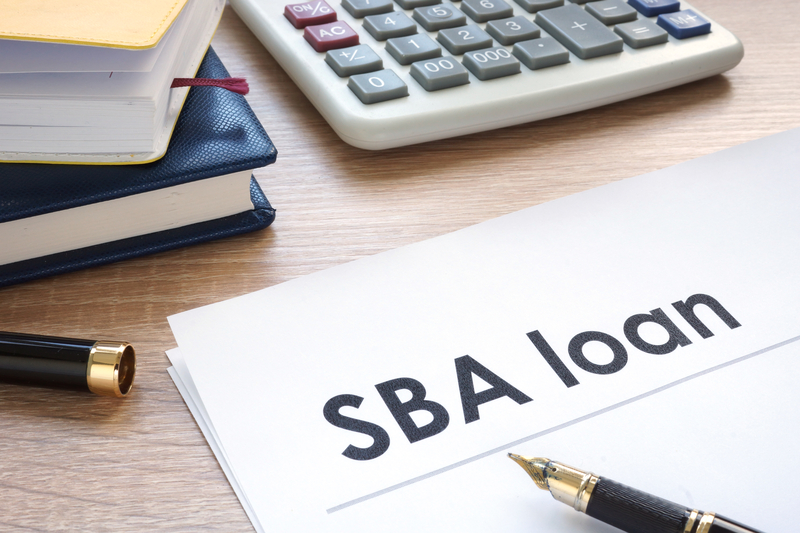At Pacific Business Sales, we specialize in facilitating the seamless sale and transition of businesses, particularly in the burgeoning Software as a Service (SaaS) sector. Whether you’re a seller looking to retire or a buyer eager to capitalize on a thriving business, our comprehensive business brokerage services are tailored to meet your needs at every step of the transaction.
Selling a SaaS Business is Very Different from Traditional Business Sales
The most common business valuation method for traditional businesses is a multiple of Earnings, usually DE (Discretionary Earnings) for businesses under $5 million sales and EBITDA for businesses over $5 million in sales.
SaaS businesses are valued differently using EV/Revenue (Enterprise Value/Revenue) as a multiple rather than earnings multiples. This is because many SaaS businesses invest heavily in technology and growth in their early years and often are not profitable at the time they go to market for prospective acquisition. This renders multiple of earnings valuation methods irrelevant for many SaaS companies.
High-flying SaaS EV/Revenue multiples have been headlining tech media with multiples as high as 20 for some high-profile deals.
The Rule of 40, 50, or is it 60 now?
The Rule of 40 was the gold standard for SaaS companies and is still considered the dominant metric of performance. The Rule of 40 is simply Annual Growth% + EBITDA% = 40 or more. This metric was intended as a way to measure emerging SaaS companies that were not yet profitable or had little profitability but were growing rapidly and investing heavily in technology, marketing, and growth.
Rule of 40 Example
Rule of 40 Formula = Annual Growth% + EBITDA
Example 1:
Annual Growth = 25%
EBITDA% = 13
Rule of 40 calculation = 25+13 = 38 Not meeting the threshold
Example 2:
Annual Growth = 31%
EBITDA% = 13
Rule of 40 calculation = 31+15 = 44 exceeds the 40 thresholds, but is not high performing by today’s standards
While the Rule of 40 is a well-known metric, it is not a valuation metric or valuation methodology. The Rule of 40 is the threshold above which a SaaS company is considered to be performing well. In the early days of the SaaS market exceeding 40 for the rule of 40 was good enough. It wasn’t all that important what the 40 was comprised of, e.g. all growth and no profitability.
As the SaaS market matured exceeding the rule of 40 with growth alone was no longer enough to obtain the high valuation multiples in the early days. Today a SaaS company must have growth and profitability or at least a very clear path to near-term profitability. Also, the Rule of 40 has become more or less a minimum threshold, and today the Rule of 50 or even Rule of 60 are the threshold for high-performing SaaS companies worthy of high valuation multiples.
2024 SaaS Business Valuation Metrics and Methodologies
SaaS company valuations and multiples will vary widely depending on the size, performance metrics, and trends of the company. As with general market businesses such as manufacturing, 3PL, construction, etc, SaaS valuations for public companies and large enterprises are vastly different from small SaaS businesses under $20 million in sales.
Multiple of Revenue Method
The most well-known SasS valuation method is likely the Multiple of Revenue method. On the surface, it seems simple, and it’s referenced in news media frequently when a SaaS company lands a deal at a high multiple of revenue. The problem is these multiples of revenue vary widely based on the size of the company, publlic vs private, growth, and profitability. At the peak of the SaaS valuation boom large SaaS companies were seeing EV/Revenue valuations over 20. Since then median EV/Revenue multiples have dropped to a median of about 10, still a very large figure compared to the general market.
While the stories of the hhigh multiples are true, the companies achieving these multiples are typically large public or near IPO and would be considered “unicorns” or what Bain & Company calls Hyper Growers. Hyper Growers by Bain’s definition are larger companies with EBITDA+Growth over 60. Venture Beat classifies companies with EBITDA+Growth over 50 as Elite SaaS companies, and again, this would apply to larger and perhaps mid-size companies.
In 2024 SaaS companies can expect EV/Revenue multiples ranging from 2 to 10 depending on company performance (e.g. Rule of 40, etc), profitability, and product positioning. It is important to note that very small SaaS companies will see much lower multiples.
Multiple of Revenue Method Formula
Valuation = ARR x Growth Rate% x NRR x 10
definitions:
ARR = Annual Recurring Revenue in millions
Growth Rate% = annual percent growth
NRR (Net Revenue Retention)% = (Recurring Revenue + Expansion & New Sales – Churns & Lost Customers) / (Previous Period Recurring Revenue)
SaaS Multiple of Revenue Calculation Example
First Let’s Check Rule of 40 Performance
Annual Growth = 41%
EBITDA% = 22%
Rule of 40 calculation = 41+22 = 60 exceeds the 40, 50 and 60 thresholds – Hyper Performer
Next Let’s Do the Math:
Valuation = ARR x Growth Rate% x NRR x 10
ARR = 10 million
Growth Rate% = 41%
NRR% = 112%
Valuation = $10 million X 41% X 112% X 10 = $45.9 million
SaaS Valuation EBITDA & Discretionary Earnings (DE) Multiples
As the SaaS market has matured valuation multiples based on EBITDA and DE are becoming more common as earnings have become more important and are being used more frequently. This is especially true for privately held small and mid-size SaaS businesses and those falling below the rule of 40.
For an explanation of EBITDA and DE see our blog What is DE & EBITDA
There is a wide range of EBITDA and DE earnings multiples for SaaS businesses with the multiple for each company dependent on a number of performance factors. EBITDA is generally used for SaaS businesses with over $5 million of revenue and DE is generally used for businesses under $2 million in revenue, with either or both being used for businesses between $2 million and $5 million in revenue.
EBITDA ranges for SaaS companies over $5 million in revenue are between 5 X EBITDA and 10X EBITDA.
DE ranges for SaaS companies under $5 million are between 4X and 10X DE.
The EBITDA ranges above are dependent on other factors such as the Rule of 40. Businesses with growth and profitability will be on the higher end, and those falling below the Rule of 40, or with weak earnings or growth will have lower multiples.
The combined total is the EBITDA. This metric is often used for more established SaaS with $5m ARR or above.
Valuations of Public, Private, Large and Small Companies
Valuations of public SaaS companies cannot be compared to those of privately held small businesses, just like the valuation of a large public manufacturing company cannot be compared to a small manufacturing company. Likewise, if a larger competitor was acquired by a Private Equity Group, this valuation is not necessarily a good comparison for your company unless your performance and competitive position is similar.
SaaS Performance Performance & Qualifier Metrics
- ARR: Annual Recuring Revenue
- CAC (Customer Acquisition Cost): Marketing Spend/number of new customers
- Churn: Canceled Customers/Total Customers during the period (e.g. fiscal year or calendar year)
- Lifetime Value: Average customer value/average customer lifespan
- MRR: Monthly Recurring Revenue
- NRR (Net Revenue Retention)% = (Recurring Revenue + Expansion & New Sales – Churns & Lost Customers)/ (Previous Period Recurring Revenue)
- Rule of 40: Annual Growth% + EBITDA%
- SAM: Served/Serviceable Available/Addressable Market
SOM: Serviceable Obtainable Market - TAM: Total Available/Addressable Market
What We Do
Our mission is to provide comprehensive services aimed at maximizing the value of your SaaS business.
Thorough Preparation
At Pacific Business Sales, we uphold a steadfast commitment to meticulously preparing your SaaS business for market entry. Recognizing the individuality of each enterprise, we embark on a collaborative journey with you, delving deep to unearth and accentuate its distinctive value propositions. Our meticulous approach leaves no stone unturned as we meticulously navigate every facet of the sales trajectory, leaving no detail unnoticed.
Our preparation process begins with an in-depth analysis of your SaaS business, where we meticulously dissect its strengths, weaknesses, opportunities, and threats. Through this comprehensive examination, we gain invaluable insights that inform our strategic approach to positioning your business within the market landscape.
With a keen focus on showcasing the unique selling points of your SaaS business, we craft a tailored strategy that highlights its strengths and addresses any potential concerns. From refining your product offerings to optimizing your operational processes, we leave no aspect untouched in our quest to maximize the appeal of your enterprise to potential buyers.
Furthermore, our preparation extends beyond the surface level, delving into the intricacies of financial documentation and operational efficiency. By ensuring that all aspects of your business are meticulously aligned and optimized, we pave the way for a seamless sales process that instills confidence in prospective buyers.
Ultimately, our commitment to thorough preparation sets the stage for a successful sales journey, empowering your SaaS business to stand out in a competitive market landscape. With Pacific Business Sales by your side, you can rest assured that every detail is meticulously attended to, ensuring that your business shines bright in the eyes of potential buyers.
Strategic Marketing
Utilizing our extensive expertise, we specialize in creating compelling advertisements meticulously designed to accentuate the unique benefits and value propositions of your SaaS enterprise. By employing a strategic approach, we ensure that your ads effectively resonate with your target audience, compelling them to take action.
Through the careful selection of major business sale platforms, we strategically place your advertisements where they will garner the most attention from qualified buyers. This targeted approach not only maximizes the visibility of your SaaS business but also ensures that your message reaches individuals who are most likely to convert into valuable customers.
We understand the importance of confidentiality when it comes to selling your business. Our meticulous processes and procedures are specifically tailored to safeguard the sensitive information of your enterprise while still effectively promoting its strengths and advantages. This ensures that your business remains discreetly positioned in the marketplace, allowing you to maintain control over the timing and manner of its sale.
Our strategic marketing services offer a comprehensive solution for promoting your SaaS business, leveraging our expertise to create engaging advertisements, targeting qualified buyers, and preserving the confidentiality of your enterprise throughout the sales process.
As we delve into the next section, we’ll explore how our strategic approach extends beyond preparation to forge lasting partnerships that drive mutual success.
Buyers: Your Partners in Growth
We recognize the pivotal role that buyers play in the growth trajectory of your SaaS business. Our relentless efforts yield a steady stream of buyer inquiries, ensuring a diverse and robust pool of potential purchasers eager to invest in your enterprise. However, our commitment extends far beyond merely generating interest. We are dedicated to fostering meaningful engagements with prospective buyers, meticulously qualifying them to ensure alignment with your business objectives.
From the initial point of inquiry to the culmination of the transaction and beyond, we serve as your trusted guide, navigating buyers through every stage of the process with transparency, integrity, and unwavering support.
Determining Market Value
Central to our approach is the meticulous process of determining the market value of your SaaS business. Utilizing advanced valuation techniques anchored in Discretionary Earnings (DE) and EBITDA, we conduct a thorough analysis of your business’s financial history. By meticulously identifying and scrutinizing discretionary expenses, we ensure a comprehensive understanding of your business’s true earning potential.
Leveraging cutting-edge valuation software and drawing insights from comparable sales data, we meticulously calculate an accurate Market Value Analysis. This analysis serves as the cornerstone for informed pricing decisions, empowering you with the knowledge and confidence needed to navigate the sales process effectively. Rest assured, every step is taken with your approval, ensuring complete alignment with your objectives and aspirations for your SaaS business.
Confidential Information Memorandum (CIM)
In our quest to captivate buyer interest, we craft a meticulously detailed Confidential Information Memorandum (CIM) designed to serve as a comprehensive prospectus for your esteemed SaaS business. From delving into historical performance metrics to offering insights into key staff profiles and available financing options, the CIM cohesively presents essential information. Our paramount focus remains on safeguarding the confidentiality of sensitive data while adeptly showcasing the inherent strengths and potential of your SaaS business to prospective buyers.
SBA Financing: A Win-Win Solution for Small Businesses
Our expertise encompasses the facilitation of Small Business Administration (SBA) financing—a mutually beneficial solution for both buyers and sellers alike. With SBA lenders positioned to finance up to 90% of qualifying transactions, buyers gain access to increased capital flexibility, enabling them to pursue larger acquisitions without exhausting their available cash reserves. Simultaneously, sellers stand to benefit from a predominantly cash transaction at the point of closing, offering a seamless transition and ensuring the realization of their business’s full value potential.
Negotiations & Due Diligence
Successfully navigating negotiations and due diligence demands a delicate balance of finesse and meticulous attention to detail. At Pacific Business Sales, our seasoned team takes the helm in facilitating these critical processes, guiding both parties with clarity and precision toward a mutually beneficial agreement. With a steadfast commitment to transparency and adherence to all requisite documentation, we ensure that every aspect of the negotiation and due diligence phase is conducted with integrity and in compliance with regulatory standards.
Escrow & Closing
As the transaction enters its final stages, our unwavering support remains steadfast through meticulous oversight of the escrow process. From securing essential tax clearances to liaising with lenders and landlords, we take proactive measures to streamline the transition to new ownership. With our expert guidance, you can navigate the complexities of the closing process with confidence, knowing that every detail is diligently managed to facilitate a seamless handover. Embrace the future with assurance as you transition into the next chapter of your journey, supported by our dedicated team every step of the way.

Are You Ready to Sell? Here are Some Next Steps
Deciding to sell your SaaS business is a significant decision that requires careful planning and preparation. At Pacific Business Sales, we’re here to guide you through the process every step of the way. If you’re ready to take the next step toward selling your SaaS business, here are some important actions to consider:
- Gather Financial Information: To accurately assess the value of your SaaS business, we’ll need access to key financial documents, including the last 3 years of Federal Tax Returns (for the business only), Profit and Loss statements (P&Ls) for the same period, and the balance sheet for the last year ending. If available, providing current balance sheet information can also be beneficial.
- Calculate Discretionary Earnings (DE) and Market Value Analysis: Once we have the necessary financial information, our team will calculate the Discretionary Earnings (DE) and conduct a comprehensive Market Value Analysis. This analysis will provide insights into the market value of your business, helping to determine a competitive listing price.
- Meet and Review Market Value Analysis: We’ll schedule a meeting to review the Market Value Analysis together. This is an opportunity for us to discuss our findings, address any questions or concerns you may have, and ensure that we’re aligned on the listing price and overall strategy.
- Sign Representation Agreement: Before proceeding with the sale process, we’ll formalize our partnership by signing a Representation Agreement. This agreement outlines the terms of our engagement and ensures that both parties are committed to working towards a successful sale.
- Create CIM: Our team will then create a detailed and engaging CIM for your SaaS business. This document serves as a comprehensive prospectus for potential buyers, providing essential information about your business while maintaining confidentiality.
- Create and Publish Ads: Once the CIM is finalized, we’ll create and publish targeted advertisements to attract qualified buyers. Leveraging our expertise in strategic marketing, we’ll ensure that your business is showcased effectively on major business sale platforms and other relevant channels.
- Buyer Inquiries and Meetings: As inquiries start to come in, we’ll facilitate meetings between you and interested buyers. These meetings provide an opportunity for potential buyers to learn more about your business and ask any questions they may have.
- Offer and Negotiations: When offers start to come in, we’ll work closely with you to evaluate each offer and negotiate terms that are favorable to your interests. Our goal is to secure the best possible deal for your SaaS business.
- Due Diligence: Once an offer is accepted, the due diligence process begins. This involves the buyer and their advisors reviewing various aspects of your business, including financial records, contracts, and operational procedures.
- SBA Financing: If SBA financing is involved, we’ll assist both parties in navigating the financing process. Our expertise in facilitating SBA financing ensures a smooth and efficient transaction for all parties involved.
- Escrow: After Due Diligence is complete and the contingency has been removed escrow is opened.
Pacific Business Sales uses an escrow company specializing in business sales transactions that is capable of both Asset sales and Stock Sales as well as working with SBA lenders and their loan documents for closing.
The escrow company performs lien searches and obtains releases from California state agencies including the FTB (Franchise Tax Board), EDD (Employment Development Dept), and CDTFA (formerly SBOE or sales tax agency). Escrow handles the closing process with the lender, signing the SBA loan documents, final closing documents, funding, and closing.
During escrow, we work closely with the escrow officer, SBA Lender, Buyer, and Seller to keep the process on track. - Training:
Once the Due Diligence contingency is removed in writing by the buyer we open escrow. Pacific Business Sales uses an escrow company specializing in business sales transactions that is capable of both Asset sales and Stock Sales as well as working with SBA lenders and their loan documents for closing.
The escrow company performs lien searches and obtains releases from California state agencies including the FTB (Franchise Tax Board), EDD (Employment Development Dept), and CDTFA (formerly SBOE or sales tax agency). Escrow handles the closing process with the lender, signing the SBA loan documents, final closing documents, funding, and closing.
During escrow, we work closely with the escrow officer, SBA Lender, Buyer, and Seller to keep the process on track.
Selling your SaaS business doesn’t have to be daunting. With Pacific Business Sales as your trusted partner, you can navigate the complexities of the transition process with confidence, knowing that experienced professionals are guiding you every step of the way.
Let us help you unlock the full potential of your business and embark on the next chapter of success. Contact us today to get started.





